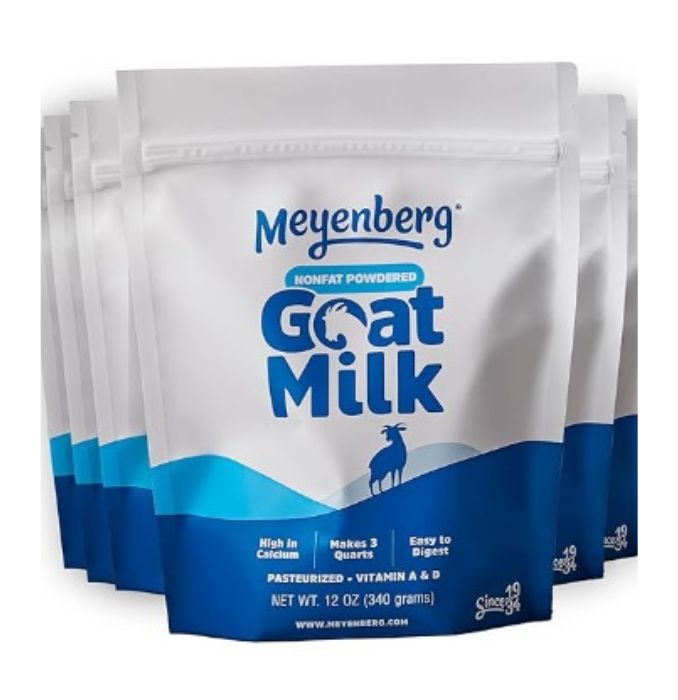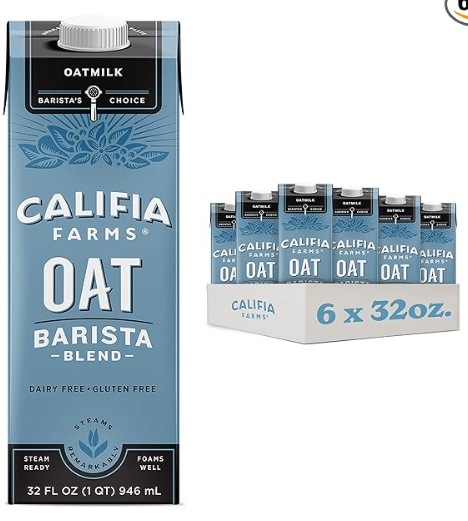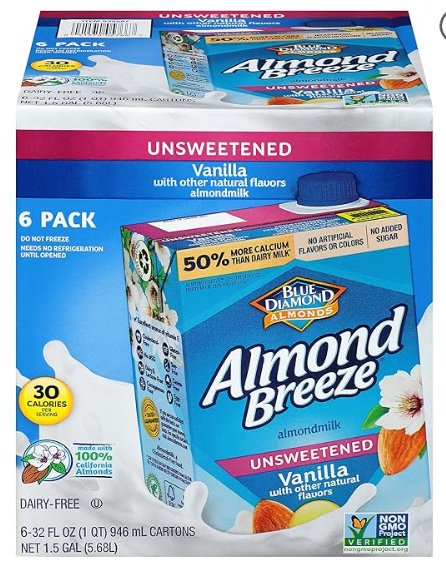4 Best Milk for Gut Health

Last updated on April 15th, 2025 at 05:58 pm
According to the Harvard School of Public Health, it was stated that The Dietary Guidelines for Americans suggest the incorporation of three 8-ounce servings of milk daily [¹] (or equivalent amounts of other dairy products such as cheese or yogurt).
But the concern is…
Which milk is best for your tummy?
But before we get into the best milk for gut health, let’s look into the role of milk in your gut.
What is the Role of Milk in Gut Health?
Milk has long been associated with promoting good health benefits, and its impact on gut health is no exception.
The gastrointestinal tract, commonly referred to as the gut, harbors countless beneficial bacteria essential for digestion, absorbing nutrients, and supporting immune function.
Consuming milk, especially fermented milk products, can support gut health by supplying vital nutrients and beneficial bacteria.
Milk contains various vitamins, minerals, proteins, and fats, including saturated fat, which are crucial for sustaining gut health.
It contains a range of minerals, vitamins, proteins, and fats, including saturated fat, that are important for maintaining gut health.
Additionally, certain types of milk, such as probiotic milk, can directly introduce beneficial bacteria into the gut, promoting a balanced microbiome.
However, it's important to note that not all milk is created equal regarding gut health.
Different types of milk can have varying effects on the gut microbiota, and individual factors such as lactose intolerance or allergies may also play a role.
Now, let's explore the best milk available for improved gut health.
Disclaimer: It’s important to note that milk may not be suitable for those who are lactose intolerant or have a casein or milk allergy. Always consult a healthcare provider before making any significant changes to your diet. They can provide personalized advice based on your individual health needs and conditions.
#4 Best Milk Available For Gut Health
When it comes to staying healthy, our guts play a big role. With so many types of milk in the market, it's important to pick one that is good for our gut. Here are the best milk available for improved gut health:
1. Hester Farm
Price: $14.99
Product Description:
When it comes to staying healthy, our guts play a big role. With so many types of milk in the market, it's important to pick one good for our gut. Here are the best milk available for improved gut health:

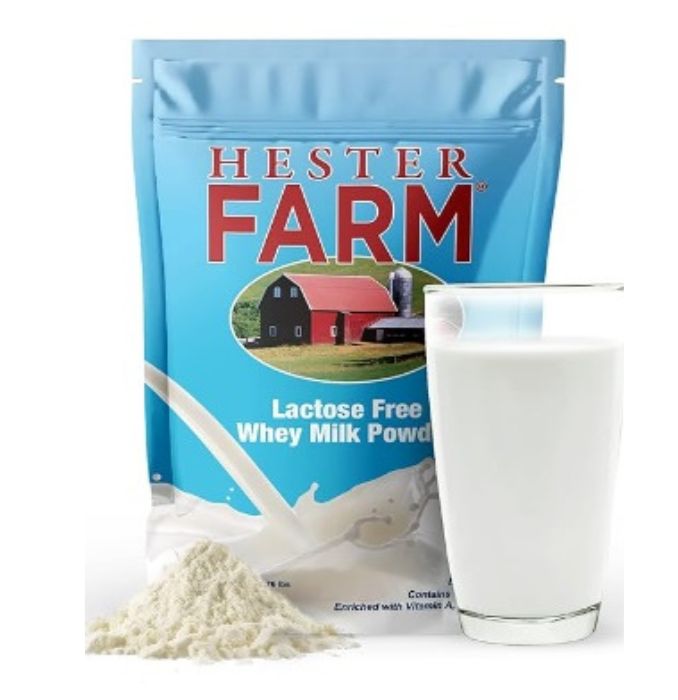
2. Meyenberg’s Goat Milk
Price: $21.19
Product Description:
The world's top dairy milk choice, goat milk boasts widespread consumption due to its easy digestion and rich taste. It's naturally creamy and nutrient-rich, with smaller fat particles and high A2 casein content.
Plus, this nonfat powdered milk provides 10g of protein per cup without any artificial additives. This goat milk is free from artificial flavors, colors, and preservatives, packaged in eco-friendly pouches to reduce waste.
3. Califia Farms Oat Barista Blends
Price: $28.79
Product Description:
Califia Farms Oat Barista Blend: Perfect for dairy-free lattes at home, with plant-based, non-GMO, and vegan ingredients. It blends smoothly into hot and iced coffee, favored by baristas for frothing and steaming.
4. Almond Breeze
Price: $28.60
Product Description:
Almond Breeze Dairy Free Almondmilk offers six 32-ounce boxes of unsweetened original almond milk crafted with real California almonds.
Free from dairy, soy, and lactose, it's a reliable source of vitamins D and E and boasts 50% more calcium than milk. Additionally, it's Non-GMO Project Verified, ensuring high-quality ingredients for your peace of mind.
Different Types of Milk for Gut Health
Choosing the right milk for gut health can be pivotal. Each milk type offers unique benefits, from probiotic-rich dairy options to lactose-free and plant-based alternatives, supporting a diverse and balanced gut microbiome. Here are the best milks for improved gut health:
1. Cow's milk
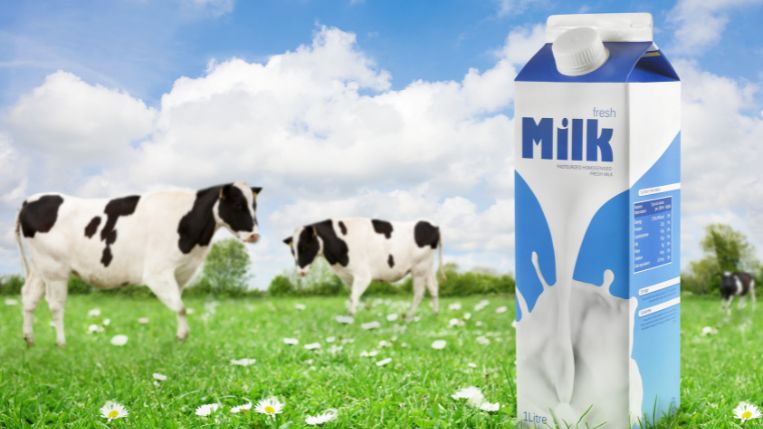
Drink cow's milk.
It is a rich source of essential nutrients, including calcium, protein, and vitamin D.
Were you aware that whole cow’s milk comprises approximately 87% water? The remaining 13% is a rich protein, fat, carbohydrates, vitamins, and minerals blend.
It's worth noting that cows are typically pregnant during milking, which results in dairy milk containing hormones such as insulin-like growth factor-1 (IGF-1), estrogens, and progestins.
Additionally, some cows receive supplemental hormones to bolster milk production.
2. Goat's milk

In many countries other than the United States, goat milk flavor is preferred over cow milk.
Goat's milk is an alternative to cow's milk that individuals with lactose intolerance or milk protein allergies often prefer.
It has a similar nutrient profile to cow's milk, but some people find it easier to digest [²].
3. Sheep's milk
Sheep's milk is another lesser-known alternative to cow's milk.
It is rich in nutrients and has a distinct flavor.
Sheep's milk contains higher amounts of fat, protein, and minerals than cow's or goat's milk.
For every 100 grams, sheep's milk has approximately 5.4g of protein, 7.0g of fat, and 5.1g of carbohydrates.
You can opt for some milk alternatives if you are lactose intolerant or have dairy allergies.
Milk Alternatives for Individuals with Lactose Intolerance or Dairy Allergies
Finding suitable milk alternatives is essential for maintaining gut health for individuals with lactose intolerance or dairy allergies. Fortunately, several plant-based milks options are available that can provide similar nutrients without the lactose or milk proteins.
1. Almond milk

This milk is made from ground almonds mixed with water.
Almond milk is inherently free of lactose and has a low-calorie content.
It is a good source of vitamin E, an antioxidant that supports immune function.
Nevertheless, it contains less protein than cow's milk.
2. Soy milk
Soy milk, derived from soybeans, serves as a commendable plant-based protein source. With all essential amino acids present, it stands as a viable substitute for those with dairy allergies.
Additionally, it's fortified with calcium, vitamin D, and various nutrients [³] to align with the nutritional composition of cow's milk.
3. Oat milk
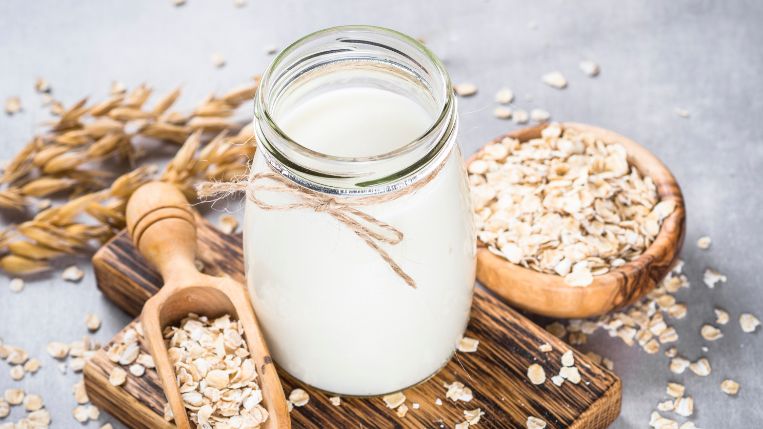
Crafted from oats soaked in water and blended, this milk emerges as a notable option.
Oat milk boasts a commendable fiber content and harbors beta-glucans [⁴], known for their advantageous impact on gut health. Frequently enriched with calcium and vitamin D, it offers additional nutritional value.
4. Coconut milk
Extracted from coconut flesh, coconut milk offers a velvety, creamy consistency.
It's a good provider of healthy fats and has lauric acid [⁵], known for fighting germs.
However, coconut milk is higher in saturated fats than other plant-based milks [⁶], so it should be consumed in moderation.
5. Rice milk

Rice milk is produced from milled rice and water.
It's naturally free of lactose and has a gentle, slightly sweet flavor.
It's commonly enriched with calcium and vitamin D.
Take note: When choosing milk alternatives, it's important to read labels and select unsweetened varieties to avoid added sugars. Additionally, plant-based milk may have a different taste and texture than cow's milk, so finding your preferred alternative may take some adjustment.
Choosing The Best Milk
Choosing the best milk for gut health depends on various factors, including individual dietary restrictions, preferences, and overall gut health considerations. Here's a breakdown of the three options you mentioned:
1. Organic Milk
– Organic milk comes from cows raised without synthetic pesticides, fertilizers, antibiotics, or hormones.
Some people believe that organic milk may contain higher levels of beneficial nutrients like omega-3 fatty acids and antioxidants than conventional milk.
– Organic milk contains lactose unless it's specifically labeled as lactose-free.
2. Lactose-Free Milk
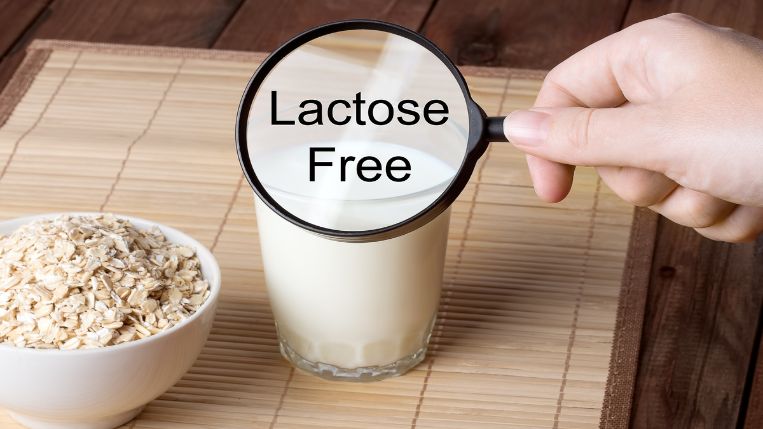
-Lactose-free milk is cow's milk treated with the enzyme lactase to break down lactose, making it easier to digest.
– Consuming lactose-free milk can prevent digestive discomfort such as bloating, gas, and diarrhea for people with lactose intolerance.
3. Plant-Based Milk (e.g., almond milk, soy milk, oat milk, hemp milk)
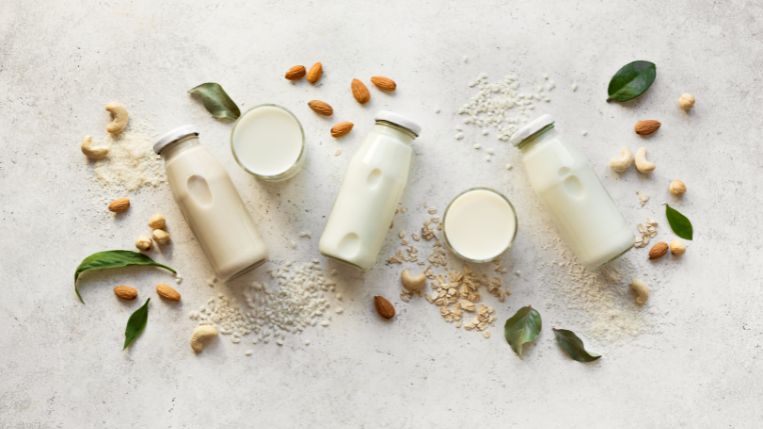
– Plant milks are made from various plant sources such as almonds, soybeans, oats, coconut, or rice.
– They are naturally lactose-free and suitable for people with lactose intolerance or those following a vegan diet.
– Some plant-based milk alternatives are fortified with vitamins and minerals, including calcium and vitamin D, which are important for bone health.
Ultimately, the best milk for gut health will depend on individual preferences, dietary restrictions, and tolerance levels. Experimenting with different types of milk and observing how your body responds can help you determine the best option for your gut.
Tips for Incorporating Milk Into a Gut-Healthy Diet

1. Choose the right milk
Experiment with different types of milk and observe how your body responds. Consider factors such as lactose intolerance or dairy allergies when selecting the best milk for your gut. Opt for organic or lactose-free options if they align with your preferences and dietary needs.
2. Go for fermented options
Incorporate fermented milk products, such as yogurt, kefir, or buttermilk, into your diet. These products contain beneficial bacteria that can promote a balanced gut microbiota. Enjoy them as a snack, include them in smoothies, or use them as a base for dressings or sauces.
3. Moderation is key
While milk can benefit gut health, moderation is key. Excessive consumption of milk or dairy products can lead to digestive issues, especially for individuals with lactose intolerance. Listen to your body and adjust your milk intake accordingly.
4. Pair milk with gut-friendly foods
Combine milk with other gut-friendly foods to maximize its benefits. Add fiber-rich fruits, vegetables, and whole grains to your milk-based smoothies, or enjoy a bowl of oatmeal with a splash of milk.
5. Consider individual needs
When incorporating milk into your gut-healthy diet, consider your needs and dietary restrictions. If you have lactose intolerance or dairy allergies, explore plant-based milk alternatives or lactose-free options to ensure optimal gut health.
Conclusion
Milk can benefit your stomach as it provides essential nutrients and aids digestion. However, the best choice depends on factors like lactose intolerance or dairy allergies. If you're okay with dairy, organic cow's milk is a good option, as well as yogurt and kefir, which contain beneficial bacteria. For those who can't tolerate dairy, lactose-free milk or plant-based alternatives like almond, soy, or oat milk are suitable. The key is to choose the milk that suits your needs and makes you feel good. By selecting the right milk, you can support your stomach health and overall well-being. Cheers to a happy belly with the milk that's best for you!
Ready to Optimize Your Gut Health? Discover the best milk options tailored for your digestive wellness! Check out our 14-Day Digestive Health Quick Start Program – Kickstart your journey to better gut health today!
Rick Kaselj MS, is a leading kinesiologist and injury specialist as well as co-creator of the best-selling Unlock Your Hip Flexors program. Rick creates exercise programs that help people heal injuries and eliminate pain, so they can go back to living a full, active, healthy life.

